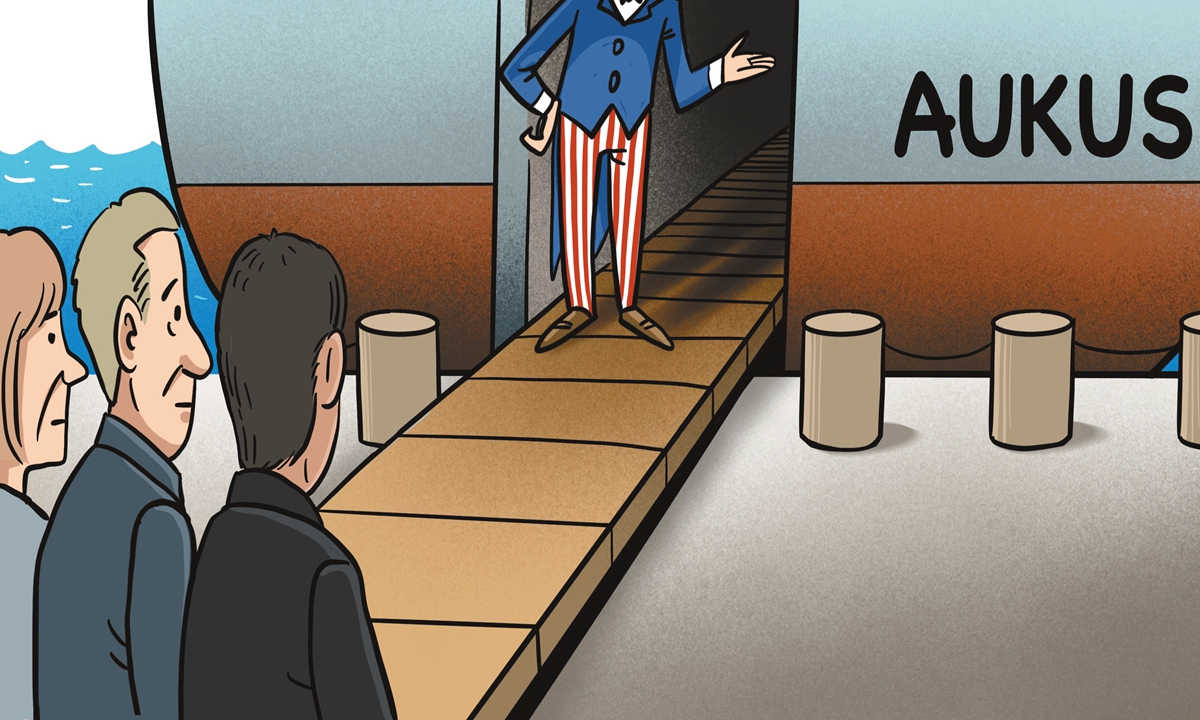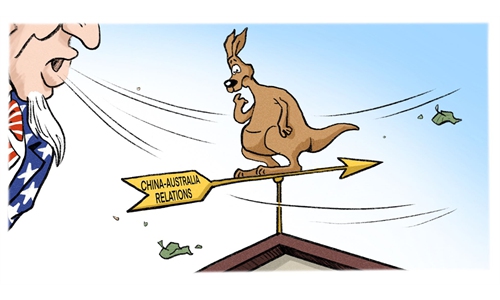
Illustration: Liu Rui/Global Times
AUKUS, the trilateral security partnership between the US, UK and Australia, has met with continuous criticism since its formation. Now, on its third anniversary, AUKUS has extended an invitation to countries like New Zealand for potential cooperation under its second pillar. In light of Australia's situation as a cautionary tale, relevant countries should take a more rational approach when considering cooperating with AUKUS, an exclusive group centered around competition and containment.On Tuesday, AUKUS announced that following its initial exploration of cooperation with Japan in April this year, it is now consulting with Canada, New Zealand and South Korea to "identify possibilities for collaboration on advanced capabilities under AUKUS Pillar II."
However, AUKUS continues to spark controversy in Australia. Several prominent politicians, including former prime minister Paul Keating, former foreign ministers Bob Carr and Gareth Evans, have strongly opposed Australia's involvement in AUKUS, expressing concerns that it will undermine Australia's sovereignty.
Australia is expected to pay up to A$368 billion for the purchase of Virginia-class nuclear submarines from the US, the core project of AUKUS pillar one, yet the future delivery remains uncertain and faces numerous challenges. No wonder Evans referred to AUKUS on Tuesday as "one of the worst defense and foreign policy decisions Australia has ever made," noting that its supporters had "lost any sense of national pride and of Australia's national interest."
With Australia stuck in what Evans calls an "irreversible" situation, countries like New Zealand, which have yet to join, should take a more rational and cautious approach when considering involvement in AUKUS pillar two. Yonhap News recently quoted analysts who pointed out that if South Korea decides to join AUKUS pillar two, it could face numerous diplomatic challenges. Since AUKUS is seen as an anti-China military alliance, South Korea cannot ignore its relationship with China when making decisions about AUKUS. For New Zealand, China has long been its largest trading partner and biggest export market. Some studies also suggest that Canada has not yet joined AUKUS pillar two primarily due to cost concerns. These interested countries should think twice: Can the benefits of joining AUKUS' so-called technological cooperation outweigh the enormous costs in terms of sovereignty, diplomatic freedom, strategic autonomy, economic development and financial expenditures?
The expansion of AUKUS, as an exclusive military alliance, goes against the theme of world peace and development, posing a serious challenge to the stability of the Asia-Pacific region and the world. As a vital engine of the world economy, any shock to the Asia-Pacific's security situation would directly impact the global economic development. Therefore, countries like New Zealand, in the face of AUKUS expansion and pillar two cooperation, should rationally assess the potential costs and make wise strategic decisions.



